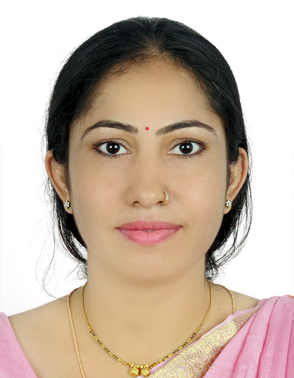ICAR-NBPGR Regional Station, Jodhpur
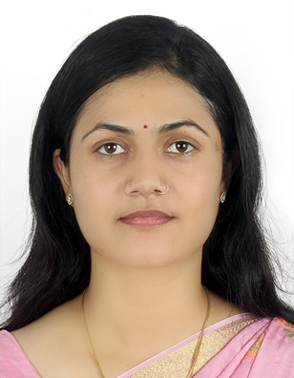
Station Coordinator: Dr. Neelam Shekhawat
Contact Numbers: +91-0291-2740385
Address: ICAR-NBPGR Regional Station Jodhpur, C/o CAZRI, Jodhpur – 342003, Rajasthan, INDIA
E-mail: neelam.shekhawat-icar@nic.in
Google Map
Mandate
This is one of the Regional Stations of National Bureau of Plant Genetic Resources (NBPGR) at Jodhpur, Rajasthan located in the Central Arid Zone Research Institute’s campus. Jodhpur is situated at 26.23890 N latitudes 73.02430 E longitudes at an altitude of 263 msl in arid/semi-arid climate with an average annual rainfall of 363 mm. NBPGR Regional Station Jodhpur was established in 1965 as a sub-station of erstwhile Plant Introduction Division of Indian Agricultural Research Institute, New Delhi. The main task assigned to the then substation was to acclimatize the genetic resources of tropical plants procured from abroad on a systematic basis and to collect the indigenous germplasm suited to arid/semi-arid conditions. With the creation of NBPGR in 1976, the substation was also upgraded to the status of a Regional Station under the technical and administrative control of the Director, NBPGR, New Delhi. It has farm area of about 2 ha with irrigation facility. The station is 7 Km away from Jodhpur Railway Station and 6.0 km from Jodhpur airport. The station has following mandate:
- Buildup of PGR through explorations independently or in collaboration with other organizations and introduction of germplasm from iso-climatic regions of the world suited to arid/ semi-arid environments.
- Characterization, preliminary evaluation, identification of accessions for specific/ desired traits and maintenance of germplasm of indigenous and exotic agri-horticultural crops and economic plants.
- Es situ conservation of germplasm of arid/ semi-arid regions for medium term at station and long-term in National Gene Bank (NGB) at NBPGR.
- Documentation and maintenance of database on passport information, evaluation for wider dissemination of information and posterity use among users.
- Distribution of germplasm of mandate crops for crop improvement programmes and supportive research purpose
- To organize, coordinate trainings, awareness building programmes, workshops etc., on crop genetic resources
Salient Achievements
(1) Germplasm Exploration and Collection:
- Collected CWR of bitter gourd Momordica balsamina collected from Nathwas, Bhiwani,Haryana during 2021
- Collected Adak Til (Sesame mulayanum) from, Dharwan Bas , Bhiwani, Haryana during It has shown resistant against phyllody disease
- Collected Moringa concanensis from Kotra, Sabarkantha, Gujarat during 2022.
(2) Germplasm Evaluation:
Approximately 3357 accessions of different agri- horti crop species have been characterized, evaluated and multiplied in recent years.
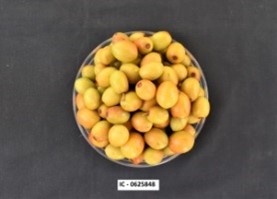
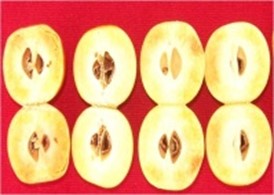
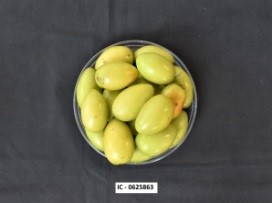
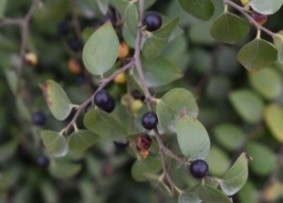
Fig. 1 Promising Ber germplasm accessions identified specific traits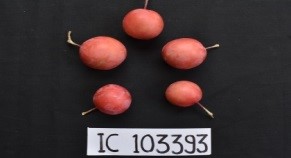
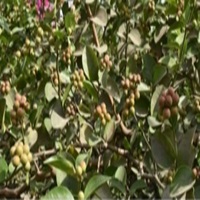
Fig. 2 superior accession of Karonda and Ker identified for specific traits
- Total of 260 accessions of horticultural germplasm comprising of ber (26), karonda (18), aonla (41), phalsa (19), ker (15), bael (19), pomegranate (26), date palm (02) and jojoba (95) conserved in FGB, Jodhpur were characterized and evaluated for morphological as well as for biochemical traits during 2021-2024.
- 3097 germplasm consist of pearl millet (1200), moth bean (300),cluster bean (400) and cowpea (285) and kallingada (50) Fenugreek (413), cumin (212) coriander (200) and amaranths (37) were evaluated for agro-morphological and biochemical
- Among fenugreek EC510664 validated for higher number of pods per plant and early days to 50 % flowering, EC510658 identified for dense foliage dense foliage, EC 510685 validated for green- copper colour leaf with high antioxidants value, EC510559 validated for high protein content in seed (30.59 %) and EC 510705 for high oil content in seed (5.10 %) respectively. The fully mature leaves of fenugreek germplasm were also subjected for bio-chemical analysis and it has revealed that EC510717 found rich for protein (5.5 %) and Zn content (1.12 mg/100 gm) respectively while EC510559 reported to have higher Ca content (330mg/100 gm).



(3) Germplasm Evaluation:
- A total of fourty three thousand and eighty five accessions of Cereals & Millets (14024), Legumes (16276), Oil Seeds (5183), Indian Fibres (544), Indian Grasses (361), Indian Fruits (1572), Indian Spices (659), Medicinal & Aromatic plants (1519), Plants of Economic importance (943) and Indian Vegetables (1459) are being conserved in the medium term storage (MTS) unit of station.
- The four hundred fifty three accessions of 49 texa comprised total live plants of 823 including Fruits, Ornamentals, Oil plants, Medicinal & Aromatic plants, Multipurpose trees, Fiber yielding plants, Forage grasses, and Others are being maintained in the field gene bank as live plants.
(4) Documentation: Annual reports are being published every year. The 7 catalogues of Guar (3), Mothbean (2), Mungbean (1) and Sesame (1) have been published for their morphological and agronomically important traits.
(5) Germplasm Distribution: Approx. 21,000 accessions of different crop species have been supplied to the indenter- scientists and students of Universities, SAU and ICAR institutes following the legal procedure.
(6) Registration of genetic stock: Based on the evaluation / characterisation of germplasm, five accessions with unique traits were registered by the Plant Germplasm Registration Committee of ICAR.
- Guar (Cyamopsis tetragonoloba ) (INGR: 8027)- IC116895, Foliaceous bracts
- Mucuna (Mucuna pruriens Bak.) (INGR: 09066)- IC385843, Higher L-Dopa Content (6.3%)
- Green Gram (Vigna radiate (L.) R. Wilczek) (INGR: 10107)-IC418452, High seed weight (9.43 g/100 seed)
- Guar (Cyamopsis tetragonoloba ) (INGR: 10019)- IC569319, Basally branched (4 primary and 4 secondary braches) with all node cluster bearing habit both in main stem as well as branches
- Guar (Cyamopsis tetragonoloba ) (INGR: 10020)- IC574580, Unique dwarf type spontaneous mutant with shortened internode (<1.5 cm)
- Green gram (Vigna radiate (L.) R. Wilczek) (INGR: 19074)- IC39289, Extra early maturing mungbean genotype.
- Moth bean (Vigna aconitifolia) (INGR: 19073)- IC120963, Extra early maturing mothbean genotype
- Ber (Ziziphus mauritiana) (INGR: 19100)- IC0625849, Unique stone less landrace of ber
- Ber (Ziziphus mauritiana) (INGR: 19099)- IC0625848, Unique fruit fly resistance landrace of ber
- Mustard (Brassica rapa var. yellow sarson) (INGR: 22165)- IC422166, White rust disease resistance
- Cluster bean (Cyamopsis tetragonoloba) (INGR: 23048)- IC140784P1, Early maturing (82 days) cluster bean germplasm
- Fenugreek (Trigonella foenum graceum) (INGR: 23124)- IC0624520, Early maturing (93 days) germplasm
(8) Field days and biodiversity fairs: Conduct of annual germplasm filed days for showcasing the diversity/ variability in the germplasm holdings is a regular event by NBPGR Regional Station Jodhpur. Scientists, students, farmers and agricultural officers participate in the field day and they select the germplasm of their choice and submit requisition for supply to them. As a part of PGR awareness generation, biodiversity fairs and grass-root level trainings for farmers were also being conducted. Our scientists/ technical staff have participated in exhibitions or farmers fair organized by Central Arid Zone Research Institute, State Agricultural Universities, etc. exposing PGR activities of the station to the public


Publications/Research Papers
2023
- Meena, V.S., Singh, K., Shekhawat N., Bhardwaj, R., Lal, H., Rani, K., Gupta, V., Kumar, A., Singh, A., Gora, S., and Kumar, P. (2023) Assessment of Genetic Variability for Fruit Nutritional Composition in the Ex-Situ Collection of Jujube (Ziziphus spp.) Genotypes of Arid Regions of India. Horticulturae. https://doi.org/10.3390/horticulturae9020210. NAAS rating : 9.10
- Singh K, Kumar M, Rawat K, Ranebennur H, Meena VS, Shekhawat N, Meena BR, Sharma M, Chawala MP, Jadon KS, Ram D, Rao GP and M Choudhary(2023). First Report of Candidatus Phytoplasmaasteris (16SrI-B subgroup) associated with phyllody disease of fenugreek in the world. Plant Dis. doi: 10.1094/PDIS-12-22-2882-PDN. NAAS rating : 10.50
2022
- Meena V.S. Gora J.S. Singh, A. Ram C., Meena, N.K. Pratibha, A. Rouphael, Y. Basile, B. Kumar, P. (2022) Underutilized Fruit Crops of Indian Arid and Semi-Arid Regions: Importance, Conservation and Utilization Strategies. Horticulturae, 8, 171.https://doi.org/10.3390/horticulturae802017, NAAS rating : 10
- Bibwe, B., Mahawar, M. K.,Jalgaonkar, K., Meena, V. , & Kadam, D. M. (2022). Mass modeling of guava (cv. Allahabad safeda) fruit with selected dimensional attributes: Regression analysis approach. Journal of Food Process Engineering, e13978. https://doi.org/10.1111/ jfpe.13978, NAAS rating : 9.0
- Vijay Singh Meena, Kartar Singh, Neelam Shekhawat, Veena Gupta and Ashok Kumar(2022) Genetic Variability of Ker (Capparis deciduas) Germplasm in Hot Arid Region of India. Annals of Arid Zone 61(3&4): 203-207 NAAS rating : 4.70
- VS Meena, R Yadav, HL Raiger, K Singh, R Parimalan, N Shekhawat and V Gupta (2022). Morphological characterization of sesame germplasm in semi arid conditions of Delhi, Annals of arid zone, 61(2): 135-138. NAAS rating : 4.70
- Shekhawat, N., Meena, V.S., Singh, K.,Rani, K. and Gupta, V. (2022). Studies on Genetic Variability,Heritability and Geneti Advance for Morphological Traits in Fenugreek for Arid Climate of Legume Research. DOI: 10.18805/LR-5046. NAAS rating : 6.80
- K Singh, VS Meena, N Shekhawat, HR Mahla, G Krishnan, and V Gupta(2022) Identification of early maturing and leaf determinate growth habit type accessions of cluster bean (Cyamopsis tetragonoloba Taub.) Journal of Agriculture and Ecology. /doi.org/10.53911/ JAE.2022.14220.
2022
- Meena VS, Bıbve B, Bhushan B, Jalgaonkar K, Mahawar MK (2021). Physicochemical Characterization of Selected Pomegranate (Punica granatum L.) Cultivars. Turkish Journal of Agricultural Engineering Research (TURKAGER), 2(2): 425-433.
Projects
Inhouse Projects
| Programme | Project Title | Leader and Associates | Project Code |
|---|---|---|---|
| 5.1 | Augmentation, Characterization, Evaluation, Maintenance, Regeneration, Conservation, Documentation and Distribution of Genetic Resources in Arid and Semi-Arid Regions | Kartar Singh | PGR/DGC-BUR-JOD-01.00 |
| 5.1.1 | Management of genetic resources of agri-horticultural crops in arid and semi arid regions | Kartar Singh, Neelam Shekhawat | PGR/DGC-BUR-JOD-01.01 |
| 5.1.2 | Evaluation of Agri-horticultural crops germplasm against abiotic stress tolerance in arid and semi arid regions | Neelam Shekhawat, Kartar Singh | PGR/DGC-BUR-JOD-01.02 |
| 5.1.3 | Evaluation of Agri-horticultural crops germplasm against biotic stress tolerance in arid and semi arid regions | Kartar Singh, Neelam Shekhawat | PGR/DGC-BUR-JOD-01.03 |
Externally Funded Projects
| Programme | Project Title | Funding Agency | Principle Investigator | Date of Start | Date of Termination | Budget (Lakhs) | Project Code |
|---|---|---|---|---|---|---|---|
| 01 | Mainstreaming of Sesame germplasm for productivity enhancement through genomics assisted core development and trait discovery (Subproject-3; Component-7: Identification of Biotic Stress (Phyllody & Dry Root Rot) Tolerant Sesame Genotypes | DBT | Kartar Singh | February 2020 | March 2024 | 42.70 | 1012167 |
Staff

Scientist, Station Coordinator
ICAR-NBPGR RS, Jodhpur
Phone:
Email: Neelam.Shekhawat-icar@nic.in, neelamshekhawat.858@gmail.com

Scientist
ICAR-NBPGR RS, Jodhpur
Phone:
Email: kirti.rani-icar@nic.in, kittubhu88@gmail.com

Technical Officer
ICAR-NBPGR RS, Jodhpur
Phone:
Email: GORDHAN.GENA-icar@nic.in, gordhangena@gmail.com



